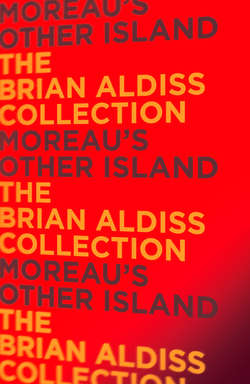Читать книгу Moreau’s Other Island - Brian Aldiss - Страница 5
ОглавлениеTo sink below the surface of the ocean was to enter a world of sound. Much of the sound originated from organic beings, for ever transmitting their signals and necessities in harmonics which ranged through a scale commensurate with their environment, from shrillest, fastest squeak to deepest grunt. No one ear in that great element could encompass the span of frequencies involved.
Near the surface of the ocean, the sounds were light and many, and the organisms transmitting them similarly multitudinous and small. Lower, where larger fish swam, a deeper note prevailed. Lower still, deeper yet. As the light faded, as pressure increased towards the submerged valleys and hills of the ocean bed, the sounds became infrequent and acquired a lugubrious note in keeping with their surroundings.
Another range of sounds also persisted. It issued from another order of existence entirely: from the inorganic, from the mantle of water which moved ceaselessly over the drowned landscapes of its domain. These throatless cadences had been audible almost since the beginning of time, certainly long before any stirrings of life. Currents, waves, tides, sunken rivers, sunken lakes and seas, all served as restless atmosphere to a world remote from the sentient creatures whose existences were confined to exposed territories outcropping above the planetary waters.
This ocean was of considerable depth. Its dimensions extended for thousands of miles in all directions. It occupied one-third of the surface of the planet, covering an area greater than that of all the exposed lands. A philosophical observer might regard it as the subconscious of the world, contrasting it to the exposed land area, which might – in the light of this rather whimsical notion – be considered as the seat of a fitful conscious.
In the aqueous subconscious of the planet all was as usual, all as it had been for millions of years. On land, away in another element, the teeming individual awarenesses of the dominant species were in more than normal ferment. Their actions were full of sound and fury. They had just launched themselves into a global war which threatened to lay waste much of the land area, besides bringing about their own extinction.
Such military clamour scarcely penetrated the surface of the great ocean. Yet even there – even there, one could search and find contra-indications, symptoms of pain.
Meteors flashing through the night sky from space were once regarded as portents of solemn events. The ocean also had its portents from an alien element. Like a shower of meteoric debris, metal from a disintegrating craft scattered across miles of sea. Slowly the parts sank, turning through the water, reflecting less and less light from above as they fell. They drifted down towards areas of enormous pressure and permanent twilight.
Finally all that remained of the Leda came to rest upon a barren plain near the equator, bedding down in primordial oozes under six thousand metres of ocean.
